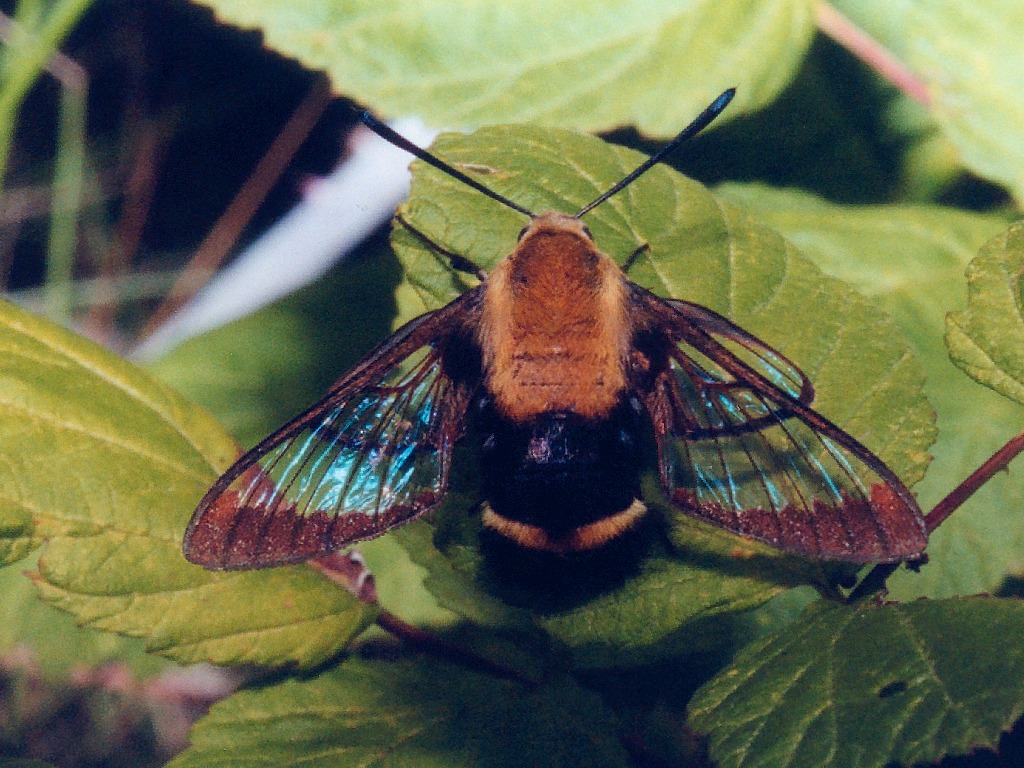Look, up in the sky! It's a bird! It's a plane! It's a bee!
Actually, it is not any of the above. It's a hummingbird moth (genus Hemaris). Moths like that are also called "Clearwing" (US) or "Bee" (UK) moths, depending on where you are.
Hummingbird moths are related to the death's-head moth (which is one of the in-progress entries from when I was in Europe). The group is collectively called 'sphinx moths' or 'hawkmoths.' Sphinx/hawk moths are the only moths capable of hovering, like, well...like hummingbirds.

Unlike most lepidopterans, hummingbird moths have very few, if any, scaly patches on their clear wings. This plus their diurnal habits and coloration make them resemble bees. Their hovering flight patterns and flower choices, however, are more akin to hummingbirds. They look like bees until you realize that they do not fly like bees or resemble tiny hummingbirds until you see their clear wings. In short, the hummingbird moth is convergent evolution on speed.

Hummingbird + bee = this.
A while back in August, I encountered one of these charming little creatures. The Mexican guy working there said that these moths sting worse than bees and was stunned that I managed to watch the moth without a single injury. Hummingbird moths do not sting at all. (If memory serves, no lepidopterans do.)
Hummingbird moths are native to North America, South America, Europe and Asia. Look for them in a backyard near you.

This one's from Vietnam and I cannot tell.
(For fun, these guys were probably the basis for the wings of the Ikran species in Avatar.)

We see this things in our butterfly bush.
ReplyDeleteWe've always wondered what they were/
Thank you.
i just saw one in my petunias. strangest thing i ever saw. it let us watch him for the longest time
ReplyDeleteThanks for posting this. Just saw one on my morning glory's. At first I thought it was tiger moth, but that wasn't quite right.
ReplyDelete